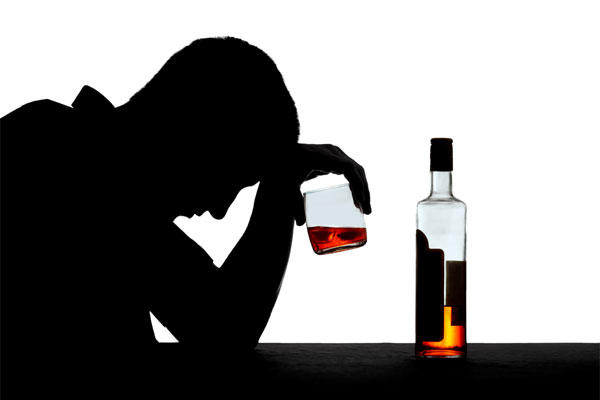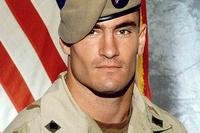A rash of incidents involving binge drinking across the services has focused renewed attention on the military’s long-standing concerns with the connection between alcohol abuse and sexual assaults.
Commanders have responded, as they have in the past when substance abuse gained national attention, with a range of solutions from the therapeutic to barracks sweeps for booze, random breathalyzer tests, and other disciplinary measures.
Lt. Gen. Patricia Horoho, the Army’s surgeon general, cited the wide variety of treatment programs in the military for problem drinkers, but said the new emphasis was on prevention.
"We have to be able to focus our attention on prevention" of alcohol abuse in the barracks and off-base before the problem requires treatment, Horoho said at a two-day Sexual Harassment/Assault Response and Prevention (SHARP) conference of senior Army officer and enlisted personnel held earlier this month at Andrews Air Force Base, Md.
Troops and their families are asked about alcohol use at every medical appointment, Horoho said, and the Army also has recently begun stressing the need for confidentiality when troops seek help for a drinking problem.
Soldiers should have access to treatment "without letting their chain of command get involved" to avoid the stigma that often accompanies troops seeking help, said Horoho, who joined several other high-ranking officers in addressing the alcohol abuse problem with a small group of reporters on the sidelines of the SHARP conference.
Defense Secretary Chuck Hagel said last month that the causes of sex abuse in the military were complex, but he noted that alcohol use was "a very big factor."
The Pentagon estimated in a recent report that as many as 26,000 military members may have been sexually assaulted last year, up from an estimated 19,000 assaults in 2010, based on an anonymous survey of military personnel. Surveys and studies by the military and outside agencies show that alcohol abuse was involved in nearly half of the incidents of sex abuse in the ranks.
The Defense Department also estimates that nearly half of female service members who reported assaults also said that they or their assailant had been drinking.
Alcohol abuse prevention requires "engaged leadership," which will mean "seeing ourselves and understanding what our soldiers habits are," said Lt. Gen. Mike Ferriter, head of the Army’s Installations and Management Command, which maintains base facilities and services worldwide.
Leaders will be going through the barracks more often to check on the beer and liquor in personal spaces, said Ferriter, who wants to bring back intramural sports on bases to offset the lure of the watering holes outside the gate.
The bottom line for Gen. Ray Odierno, the Army’s chief of staff, was getting at the "culture" in the military that tends to glorify the Hollywood image of the hard-drinking maverick who shakes off a hangover to do what needs to be done.
Odierno said there might have been a tendency in the past to overlook misconduct "because he’s a good warrior. We have lots of good warriors who don’t do that stuff."
Gen. Mark Welsh, the Air force chief of staff, hinted at the insidious nature of the link between drinking and sexual assault when during a May 17 news conference he said, "We have a problem with respect for women that leads to many of the situations that result in sexual assault in our Air Force."
"In many of the cases, it’s friends who get together. Typically alcohol is involved," Welsh said. "And at some point during the evening, if it’s a man on a woman, the man basically just shows a lack of respect for the woman, who is incapacitated, and commits a crime. It’s not a mistake. It's not bad behavior. It’s a crime."
The Marine Corps has begun giving random breathalyzers tests to troops on base, but Navy Secretary Ray Mabus had a different approach to prevention when dealing with the alcohol abuse problem – sending the shore patrol out to the bars.
At a breakfast with reporters earlier this month, Mabus said, "We’re sending shore patrols out -- the first time in a long time we’ve done that – and we’re stressing bystander intervention."
The Navy also is continuing efforts to cut alcohol abuse to counter the large number of sexual assaults associated with intoxication, Mabus said.
In a recently publicized Naval Academy case, three football players and a female midshipman were drinking heavily at an off-campus location known as the "football house." The victim woke up the next day with bruises on arms and legs, and later learned that the three players were bragging about having sex with her, according to the midshipman’s lawyer.
The charges against the players were filed by the Academy’s superintendent, Vice Adm. Joseph Miller, a week after Marine Maj. Mark A. Thompson, a former instructor at the Academy, was sentenced by a general court martial to 60 days imprisonment and $60,000 in docked pay in a sex abuse case involving two female midshipmen, binge drinking and a strip poker party.
In other cases involving heavy drinking and sex abuse charges, Lt. Col. Jeffrey Krusinski, who had been chief of the Air Force’s sexual assault prevention branch, has been charged with sexual battery in Arlington County, Va., criminal court for allegedly groping a woman in the parking lot outside a strip club. Police said that Krusinski was drunk at the time.
In April, Army Maj. Gen. Ralph Baker, commander of the Combined Joint Task Force-Horn of Africa in the Africa Command, was fired and fined a portion of his pay for allegedly groping a civilian woman after he had been drinking.
The Institute of Medicine, part of the National Institutes of Health, in a study last year called drugs and alcohol abuse in the military a "public health crisis."
"Like many sectors of society, the U.S. military has a long history of alcohol and other drug misuse and abuse," the institutecs report said.
Since the start of the wars in Iraq and Afghanistan, alcohol abuse among returning military personnel has spiked, with nearly half of all active duty service members reporting binge drinking in 2008, according to the document.
About 20 percent of active duty personnel reported having engaged in heavy drinking in 2008, the latest year for which data are available, and binge drinking increased from 35 percent in 1998 to 47 percent in 2008, the report said.
Charles P. O’Brien of the University of Pennsylvania, who chaired the committee that authored the study, said, "Better care for servicemembers and their families is hampered by inadequate prevention strategies, staffing shortages, lack of coverage for services that are proved to work, and stigma associated with these disorders."
In a separate survey in January, the Army said 43 percent of active-duty soldiers had admitted binge drinking within a month and that 67 percent of the binge drinkers were 17 to 25 years old.
In responding to the sexual assaults in the ranks and the heavy drinking involved in many cases, the service chiefs have warned of the erosion of trust that is at the heart of the military’s culture.
In a June 13 op-ed article for The Washington Post, Army Lt. Col. Elizabeth Robbins, a public affairs officer at the Pentagon, addressed the trust problem that has altered the way she relates to other soldiers.
"The reasons for the growing sexual assault problem in our military are complex and require serious investigation," Robbins said, "but it has been known for years that alcohol abuse is a dominant factor in most military sexual assault cases."
"I have always understood that the brotherhood of arms ends at the first drink," she said. "Upstanding, highly-disciplined soldiers can become leering fools under the influence of alcohol, and I know from hard experience that in off-duty social settings, it is best to drink lightly and leave early."
"More times than I can count, I have broken the hearts of new troops when I explain that they are not safe when their military brothers are drinking," Robbins said. "The security and fellowship of the battlefield that they can expect and provide in turn may not extend past that first drink. The realization sinks in slowly, and we share a moment of quiet sadness."





























